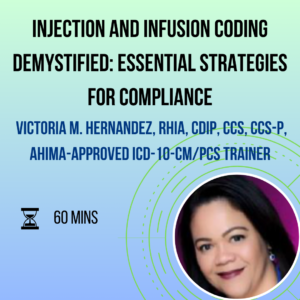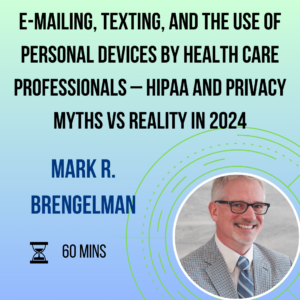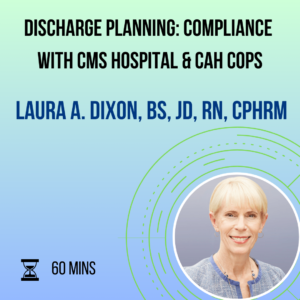Marketing and Empathy Psychology
HIPAA 42 CFR Part 2 – New Updates About the Confidentiality of Substance Use Disorder (SUD) Patient Records: What You Need to Know
By - Mark R. Brengelman
Lorem ipsum dolor sit amet, consectetur adipiscing elit. Ut elit tellus, luctus nec ullamcorper mattis, pulvinar dapibus leo.
- 06 Aug - 21 Oct 2022
- 10:00 - 12:00
- | Available all day |
- 60 Mins

HIPAA medical records confidentiality and confidentiality of substance use disorder; mental health records confidentiality
This webinar examines the new Code of Federal Regulations governing HIPAA privacy for Substance Use Disorder records in mental health.
This new federal law is only a few months old, but has had a huge impact on the rights of patients and persons availing themselves of mental health treatment for substance use disorder.
Erase the uncertainty and doubt about what the new law does – and doesn’t – do to protect patient confidentiality.
Overview:
On February 8, 2024, both the U.S. Department of Health & Human Services (HHS) with the Substance Abuse and Mental Health Services Administration (SAMHSA) along with the Office for Civil Rights announced a final rule in the Code of Federal Regulations changing the HIPAA confidentiality of medical and mental health records for Substance Use Disorder (SUD) records regulations.
This new law is now at 42 CFR part 2. With this final rule now firmly in place, the HHS is implementing the confidentiality provisions originating with section 3221 of the Coronavirus Aid, Relief, and Economic Security (CARES) Act, which was enacted March 27, 2020, and which require the Department to align certain aspects of Part 2 with the Health Insurance Portability and Accountability Act of 1996 (HIPAA) Rules and other applicable federal law in the Health Information Technology for Economic and Clinical Health Act (HITECH).
The Part 2 statute (42 U.S.C. 290dd-2) protects the following: “[r]ecords of the identity, diagnosis, prognosis, or treatment of any patient which are maintained in connection with the performance of any program or activity relating to substance use disorder education, prevention, training, treatment, rehabilitation, or research, which is conducted, regulated, or directly or indirectly assisted by any department or agency of the United States.”
These defined confidentiality protections now help address concerns that discrimination and fear of criminal prosecution deter people from entering treatment for SUD.
The updates, changes, and modifications in this final rule reflect the proposals published in the December 2, 2022, Notice of Proposed Rulemaking (NPRM) and public comments received from many interested parties.
These included substance use disorder and other advocacy groups; trade and professional associations; behavioral and other health providers; health information technology vendors and health information exchanges; state, local, tribal and territorial governments; health plans; academic institutions, including academic health centers; and unaffiliated or anonymous individuals.
Following the usual and customary 60-day comment period, HHS analyzed and carefully considered all comments submitted from the public on the NPRM and made appropriate modifications before finalizing this updated law. This is an intermediate webinar.
Learning Objectives:
- Basics of HIPAA privacy and security;
- What makes mental health and substance use disorder records different from other medical records;
- A review of the federal administrative regulations process – all about notice and comment rulemaking;
- Examination of updates to this new federal law;
- Patient consent and other uses and disclosures;
- Penalties and breach notifications;
- Patient notice and safe harbor provisions;
- Best practices for obtaining this protected information, and;
- Basic tips and techniques to defend yourself from liability.
Who Should Attend:
HIPAA privacy officers; medical records workers; health care attorneys
Vulputate eros arcu magnis donec sem pretium scelerisque a etiam. Eros aliquam elit si mattis phasellus at orci letius ligula posuere. Sodales maecenas facilisis diam egestas dictumst si fames mus fermentum conubia curabitur. Ornare nisi consectetur semper justo faucibus eget erat velit rhoncus morbi.
Speaker Detail

Mark R. Brengelman
Mark holds Bachelor’s and Master’s degrees in Philosophy from Emory University and a Juris Doctorate from the University of Kentucky. Retiring as an Assistant Attorney General, he now represents: • health care professionals; • two government health care licensure boards, and; • parents and kids in confidential child abuse and neglect cases, termination of parental rights, and adoption proceedings Mark has worked for all three branches of government. He is a frequent continuing education presenter around the country having presented continuing education for over 50 different national and state organizations and private companies. Mark helps his clients navigate the law and ethics and make the rules understandable as applied to them.
Webinar Information
- Duration : 60 Mins
- Date: | Available all day
- 06 Aug - 21 Oct 2022
- 10:00 - 12:00
- Jakarta, Indonesia
Share this event
Related products
-

Injection and Infusion Coding Demystified: Essential Strategies for Compliance
$199.00 – $349.00 Select options -

E-mailing, Texting, and The Use of Personal Devices by Health Care Professionals – HIPAA and Privacy Myths vs Reality
$199.00 – $349.00 Select options -

Discharge Planning: Compliance with CMS Hospital & CAH CoPs
$199.00 – $349.00 Select options -

Diminish Confusion with Coding Injections and Infusions
$199.00 – $349.00 Select options



